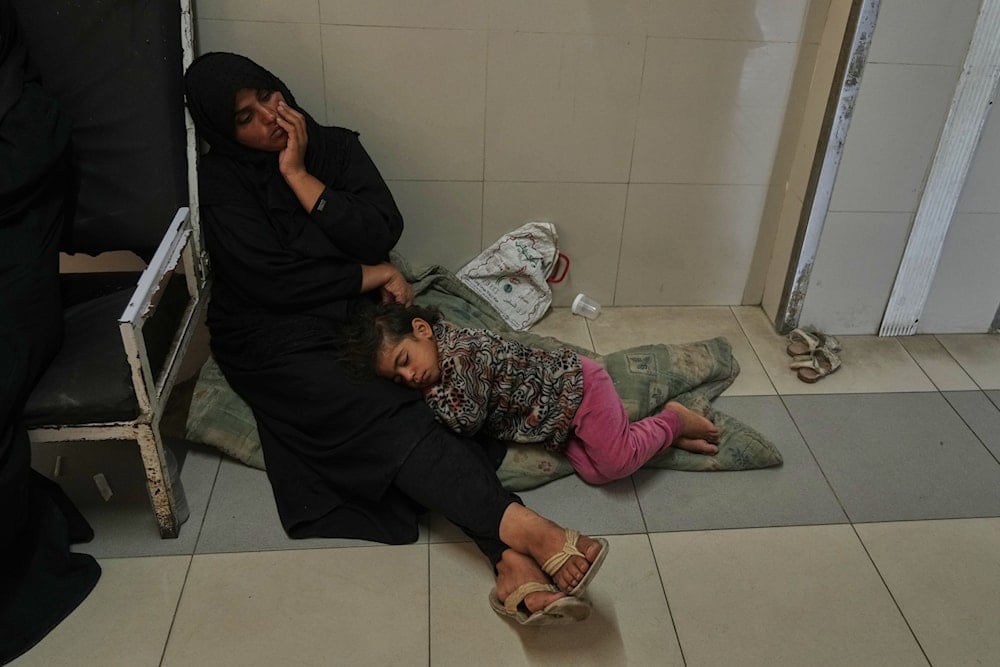On their day, Gaza's little ones face disease, silent suffering
Gaza's children face a health crisis as Guillain-Barré syndrome spreads amid war, water contamination, and severe medical shortages.
-

Palestinian children and their families rest in the corridors due to overcrowding in the pediatric department at Nasser Hospital in Khan Younis, southern Gaza Strip, Wednesday, Oct. 8, 2025 (AP)
On World Children's Day, Gaza's little ones face yet another threat to their lives, with reports of the Guillain-Barré syndrome spreading at alarmingly worrying rates in the Strip.
Ahmad al-Farra, head of the pediatric department at Khan Younis Hospital, warned that Guillain-Barré syndrome, a rare neurological disorder, is spreading among children in the Gaza Strip at unprecedented levels worldwide, with nearly 200 cases recorded this year alone, compared to just one case per year before the war.
The disease resembles polio in its symptoms and is known as ascending flaccid paralysis. It typically begins in the lower limbs with tingling, weakness, and an inability to stand, eventually affecting the respiratory system.
Laboratory tests indicate that severe water contamination is the main cause, with cases concentrated in the Al-Mawasi area of Khan Younis. The syndrome is neither hereditary nor contagious and usually appears after a gastrointestinal infection or vaccination.
Gaza' children are being ravaged by disease without mercy while the world remains silent in the face of a tragedy that worsens with each passing day, as their fragile bodies have become a battlefield against epidemics that were never meant to be part of their childhood, with rare illnesses spreading like wildfire due to contaminated water, hunger, malnutrition, and the lack of adequate healthcare.
Lack of resources turns treatable cases lethal
The lack of adequate treatment and medical resources has already led to the deaths of children who could have otherwise recovered, while malnourished children or those with low body weight face even higher risks.
Infants just months old are suffering from severe anemia, while others are struck by ascending flaccid paralysis that leaves them unable to stand or breathe, as doctors are left powerless in the face of medicine shortages and restrictions on treatment.
Munir al-Bursh, Director-General of Gaza’s Ministry of Health, highlighted a severe rise in anemia among children, with 82% of infants under the age of one affected.
Since the start of the war, 156 cases of birth defects have been reported, a consequence of deprivation from basic medical care, and the overall birth rate has dropped by approximately 40% compared to the pre-war period.
Al-Bursh also criticized Israeli restrictions on essential childhood medicines, describing the situation as a form of “health genocide engineering.” He warned that this ongoing deprivation could result in a generation burdened by disabilities, deformities, and chronic health complications.

 3 Min Read
3 Min Read










